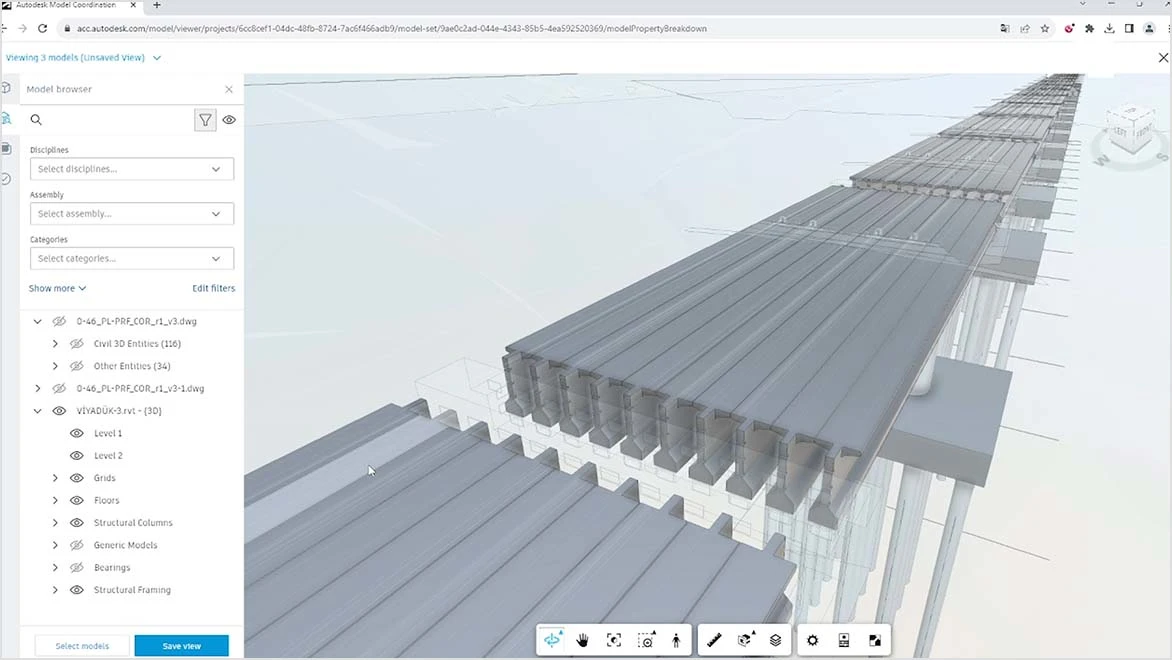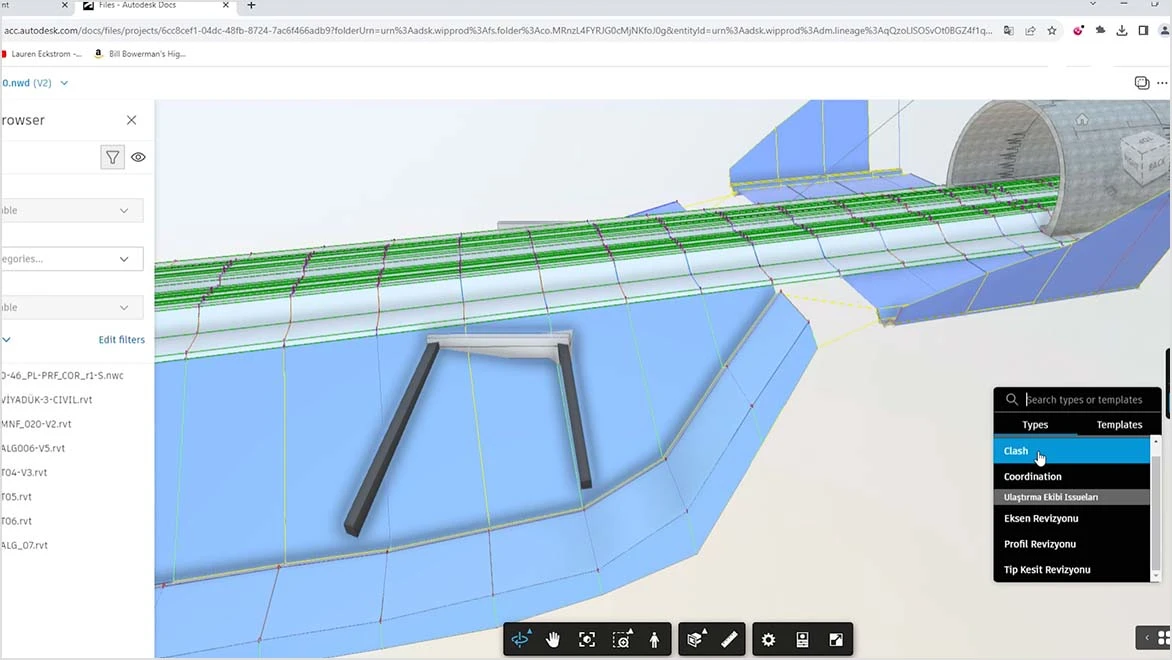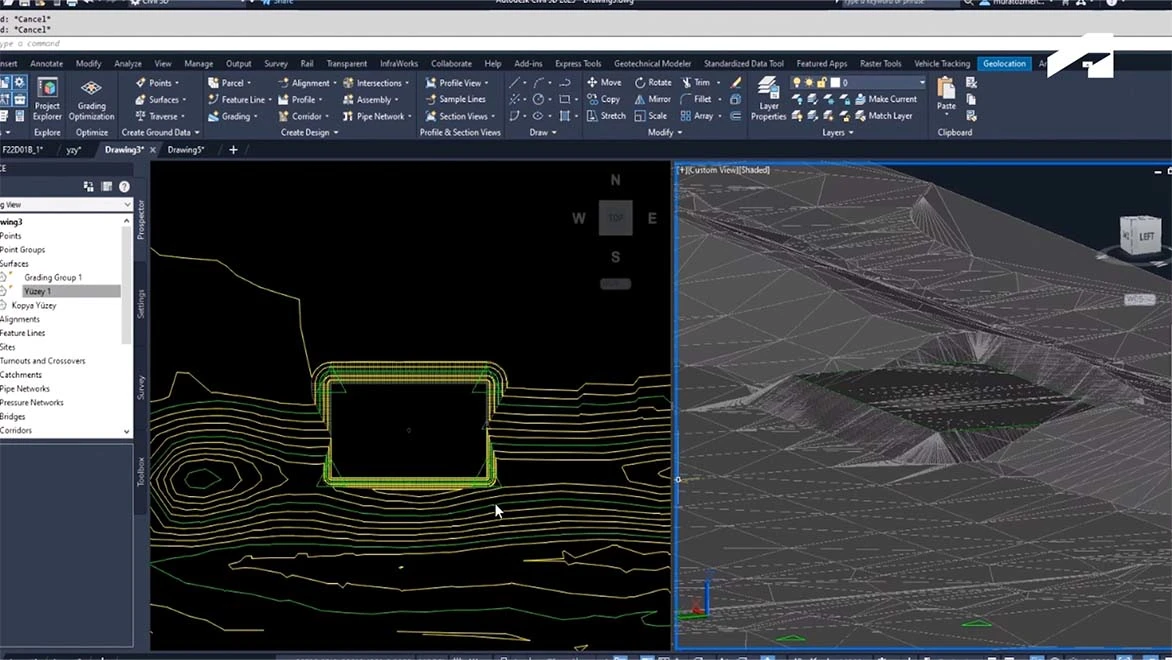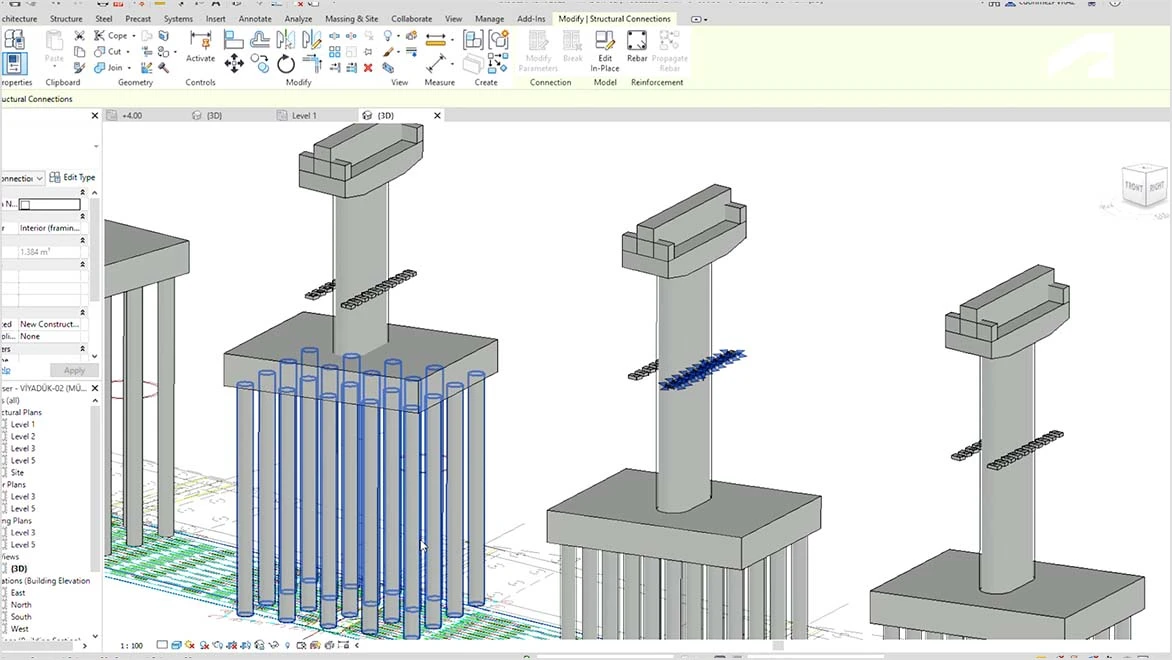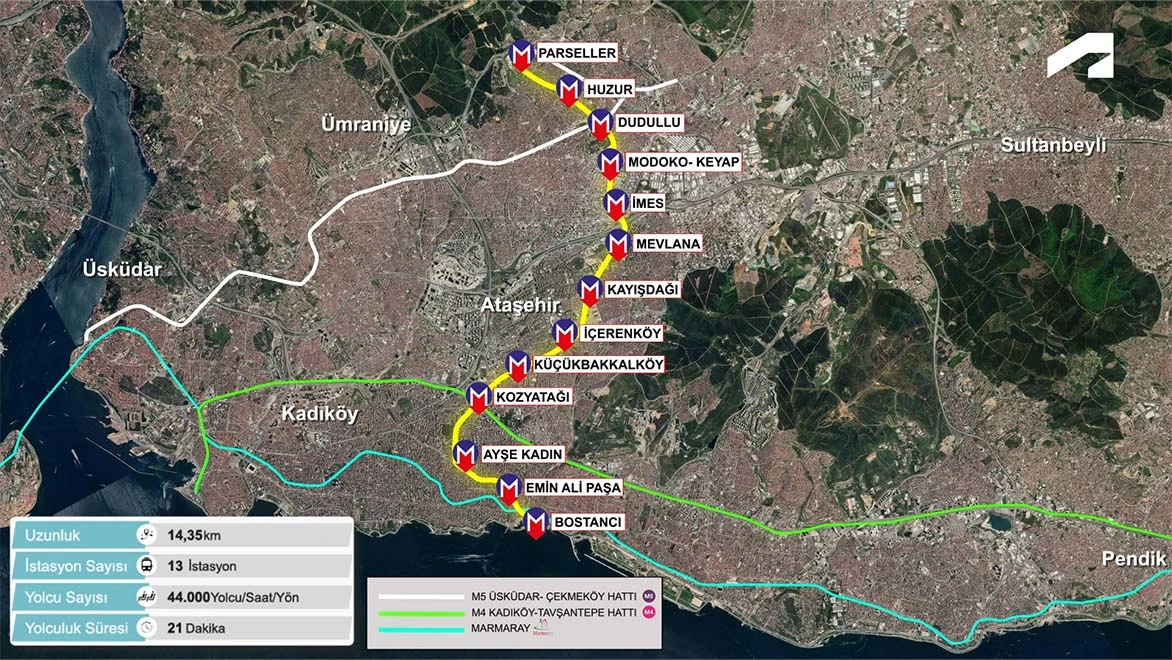& Construction

Integrated BIM tools, including Revit, AutoCAD, and Civil 3D
& Manufacturing

Professional CAD/CAM tools built on Inventor and AutoCAD
EMAY Engineering, a prominent player in transportation and architectural projects both in Türkiye and abroad, employs Building Information Modeling processes to ensure success and efficiency in its endeavors. For modeling, EMAY Engineering teams utilize the AEC Collection solution package, which includes Autodesk’s BIM software, and the cloud-based BIM platform ABC Pro. The company also supports the digitalization efforts of institutions and organizations that serve under the Ministry of Transportation and Infrastructure.
Established in 1980, EMAY Engineering operates in the engineering and technical consultancy sector both in Türkiye and in global markets with a team of over 1,200 architects, engineers, and specialists.
Standing out with its experience in transportation projects, EMAY Engineering is also recognized for its success in architectural structures, buildings, water, and environmental projects. Providing a wide range of services including architectural and engineering design, project planning and preparation, project implementation, on-site supervision, and management, the company boasts technologically proficient human resources complemented by a digital transformation policy to achieve its goals on local and international scale and compete in world markets.
Sinan Alemdar, Board Member and EVP, states, “Our primary focus as the EMAY Engineering team is to design transportation structures that we can proudly pass on to future generations.” Alemdar, who began his professional journey 30 years ago at the General Directorate of Highways, has joined EMAY Engineering in 1998, where he has been actively involved in numerous large-scale projects since. “I can confidently assert that such projects are no longer viable without implementing BIM processes,” Sinan Alemdar says, adding that his company, fully aware of this reality, has played a role in the development of specifications and regulations concerning BIM usage in infrastructure projects initiated by the Istanbul Metropolitan Municipality since 2014. From 2020 onward, EMAY has continued to support the digitalization of institutions and organizations that serve under the Ministry of Transportation and Infrastructure.
Sinan Alemdar, also a founding member of BuildingSMART Türkiye Chapter and a member of the mirror committee for integrating the ISO19650 standard into the Turkish Standards Institute, highlights how EMAY has accelerated its own digital transformation throughout this journey.
Bülent Demirca, EVP for Design, notes, “Our intention to adopt BIM was the driving force behind our digital transformation,” underscoring the strategic importance of EMAY’s technology investment.
Their first step was to enhance existing design capacity and skills for transportation projects. They devised training program to manage projects using the BIM framework, with Autodesk Civil 3D and Revit at its core. Design roles in the organization were redefined accordingly. EMAY has adopted the new Autodesk technologies to facilitate creative design processes, Bülent Demirca notes, within two separate design groups focused on “Roadways” and “Architectural Structures”. Architects and engineers in these groups have started using Civil 3D, Revit, Navisworks and other Autodesk AEC platform tools in line with BIM processes.
EMAY’s Transportation Engineering Group provides all data used as a basis for transportation projects and the architectural structures. Burcu Kaba, Transportation Engineering Group Manager, shares that they have relied on Autodesk’s Civil 3D for many years. The Subassembly Composer add-on and Dynamo codes have boosted the efficiency of EMAY’s design processes significantly in recent years, according to Burcu Kaba, who goes on to note, “The days of designing road projects without BIM are over.” She continues: “This is due to the substantial expansion of the scope of work. Every phase of a multi-kilometer road project is a complex network of various infrastructures. For example, you might intersect with electrical infrastructures. And some of these cannot be relocated because doing so would exceed the project’s budget. So we cannot afford to ignore or overlook such conflicts. Otherwise, the consequences can be substantial.
BIM greatly reduces potential costs, time, and labor losses in this regard. Most importantly, we can demonstrate these conflicts to our clients and stakeholders on a 3D model. Every stage of the work and the responsibilities of all stakeholders can be transparently displayed. We can communicate our concerns simply and easily, and make decisions without unnecessary delays. Autodesk’s cloud-based BIM infrastructure provides great convenience in this regard. This eliminates issues related to file transfers, version compatibility, and file accessibility.”
Murat Cem Dönmez, Structural and Earthquake Engineering Group Manager at EMAY Engineering, notes the crucial role engineering structures such as bridges, viaducts, and tunnels play in the overall success of transportation projects. “While incorporating BIM processes into the design of architectural structures, we, as a group, rely on Autodesk BIM software,” says Murat Cem Dönmez before summarizing the benefits such software offers: “We have been avid users of software such as AutoCAD, Civil 3D, and Revit for structural design for quite some time. Thanks to our adaptation to BIM processes, we are now experiencing the clear advantages of 3D modeling and visualization offered by these tools. The Subassembly Composer and Dynamo codes continue to evolve our parametric design and automation capabilities. By harnessing the power of the cloud-based BIM infrastructure, ABC Pro, we reap the benefits of early conflict detection, project monitoring, and streamlined reporting. All of these translate into enhanced productivity and cost savings. BIM processes also reduce errors and the need for revisions, which positively impacts project management and client satisfaction. Consequently, we enjoy greater speed both in the stages of structural design maturity and in the revision process.”
Istanbul Mecidiyeköy Mahmutbey Metro and Istanbul Ataköy İkitelli Metro, two large-scale projects in which the EMAY Engineering team was involved, has won the Autodesk AEC Excellence Award. Among the notable transportation projects the company has took part in are the Northern Marmara Motorway, Istanbul-Izmir Motorway, Istanbul Golden Horn Metro Bridge, Istanbul Dudullu Bostancı Metro, and Istanbul Üsküdar Ümraniye Metro.
Sinan Alemdar, Board Member and EVP, notes EMAY’s continuous investments in technology and human resources to cement their position in domestic and international competition, and shares that BIM investments are an integral part of that endeavor.
—Sinan Alemdar, Board Member and EVP, EMAY Engineering
When great minds have great tools, they can accomplish great things.

